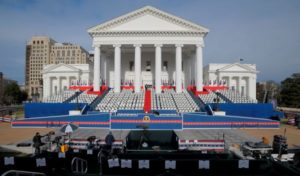
Most Americans do not understand the economics behind good regulatory policy.
What prevents U.S. policymakers from creating more efficient regulations?
One factor is the American public. In a recent paper, Professor Jonathan Baron, William T. McEnroe, and Christopher Poliquin present findings from a series of experiments testing how well Americans understand economic efficiency. They conclude that most Americans have little understanding of the economic theories behind efficient regulation.
In their research paper, “Citizens’ Perceptions and the Disconnect Between Economics and Regulatory Policy,” Baron and his co-authors suggest that public misunderstanding of economic arguments for and against a variety of regulatory schemes prevents legislators from adopting the most efficient regulations.
Baron, McEnroe, and Poliquin set up several experiments designed to test lay persons’ understanding of the economics behind various methods of pollution regulation. In their first experiment, the researchers asked subjects to consider two policies—one based on emissions trading and the other involving direct regulation. Between the two policies, the subjects were asked to indicate both their personal preference and which policy they believed cost less. After the initial survey, the researchers instructed half of the subjects on the mechanisms of economic efficiency. Finally, the researchers surveyed the trained and untrained groups a second time, asking them again to indicate both their personal preference and which policy they thought would be less costly.
The researchers found that subjects instructed in economic efficiency were more likely to prefer emissions trading, which is the more efficient regulatory approach. This result suggests that the general population could benefit from an education in economic efficiency.
However, moral considerations may lead citizens to reject the most efficient policy options. When the researchers introduced another element to the survey—the subjects’ moral views on emissions trading—many subjects indicated a preference for direct regulation, despite recognizing that emissions trading is more efficient.
In their second experiment, Baron and his co-authors explored subjects’ understanding of how information affects the suitability of a given regulatory scheme. Subjects responded to a number of scenarios, which differed in terms of information available to the government and to potential victims. Subjects then ranked the desirability of four possible policy responses: taxation, direct regulation, government subsidies, and tort litigation.
Ultimately, varying levels of information had little effect on the subjects’ policy preferences. Regardless of the availability of information, survey respondents favored direct regulation the most and subsidies the least.
In their third experiment, Baron and his coauthors sought to evaluate subjects’ understanding of how governmental and victim knowledge affect choices about regulatory policy through another series of scenarios and questions. Their findings demonstrated that subjects failed to distinguish which regulatory methods relied on which types of knowledge, although they did indicate a minimal understanding that some regulation is more effective when more information is available.
Finally, in their fourth experiment, the authors examined the subjects’ preference for taxes over subsidies, setting up a series of questions in which the optimal solution was to pay a subsidy or collect a tax equal to the harm of the expected pollution.
The results indicate that, while subjects may not significantly prefer taxes to subsidies, they largely agree that the amount of money collected through taxation should be higher than the amount collected through subsidies. The researchers attribute this result to the public view of taxation as a punishment, which should morally require additional cost to act as a penalty to the polluting entity.
From these experiments, Baron and his coauthors concluded that most Americans, and perhaps even legislators themselves, do not understand the economic arguments underpinning regulatory schemes. While the first experiment suggests that instruction in economic efficiency leads citizens to select better policy options, the other experiments indicate that, without education in economic theory, citizens form preferences about regulation based on moral judgments.
The importance of moral and ideological conceptions of regulation also emerged from the open comment solicited by Baron and his coauthors in each experiment. Many respondents discussed their personal moral considerations and expressed cynical views on governmental action and “big business.”
Ultimately, the authors identified two primary causes of the incongruity between efficient regulation and public preferences—citizens’ lack of understanding of economic efficiency and ideological views condemning polluting entities as morally bankrupt.
As the authors describe, citizens’ perceptions “affect policy through legislation, public pressure, and other ways.” Such a disconnect between public perception and economically viable regulatory schemes may have a significant effect on U.S. regulatory policy for years to come.
Baron, McEnroe, and Poliquin’s paper appears as a chapter in the recently published book, Regulatory Breakdown: The Crisis of Confidence in U.S. Regulation, edited by Cary Coglianese and published by the University of Pennsylvania Press.
This post is part of The Regulatory Review’s three-week series, Regulatory Breakdown in the United States.



